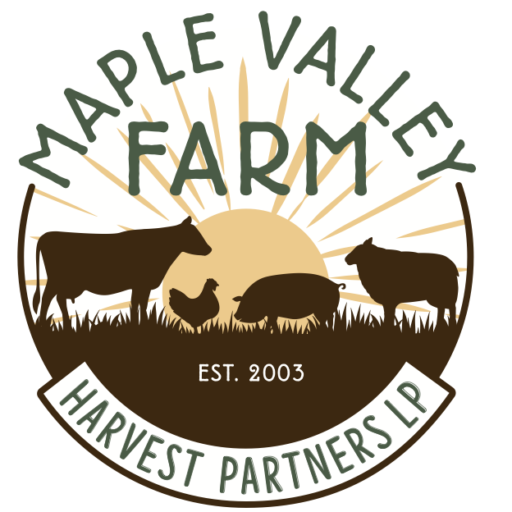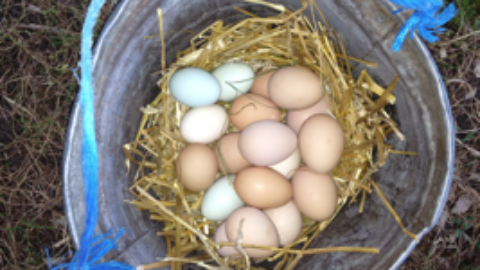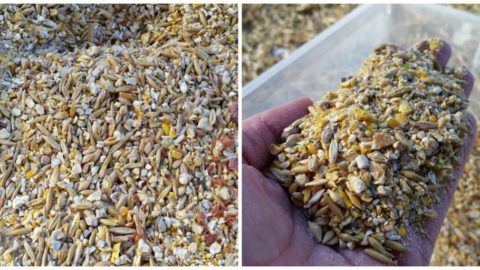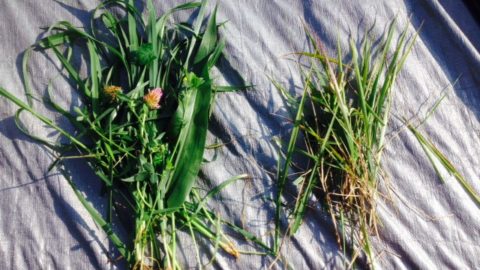In 2016, Maple Valley Farm and Harvest Partners will provide the meat for 23 families with a goal of 50 families in the next year. We’re quite honored and proud to do so. Yet we still get some interesting sideways glances when we mention this fact to friends in the conventional farming world. Maybe it’s the concept of actually feeding people whom we know (including ourselves) that surprises them. Or maybe, it’s that all-too-common mantra of conventional ag — “We’re feeding the world!” — that’s causing a sense of cognitive dissonance in them. Sometimes we can imagine the words passing behind their skeptical face: “Most farms are producing enough to feed thousands, and you seem happy to feed just 23 families??…” It’s true. Many of these conventional farms produce enough grain and/or meat to feed thousands upon thousands of livestock or people.
What gives us the right to exist as a farm, much less make a living, from feeding just 50 families when other farms can feed thousands? Here, it would be easy to jump straight to an answer that ignores the historical benefits of large-scale, mechanized, chemical agriculture. It would be difficult to argue that most of us have not benefitted in some way from conventional farming practices. Nonetheless, it’s also becoming clear that the current system has drawbacks, externalized costs, dangers and possibly limits in scale and duration that warrant the exploration of alternative approaches. After all, the term “sustainable farming” implies that the conventional approach is not sustainable. Whether this is true or not, in a literal sense, is a topic that we could examine in a separate post. Either way, our answer is that we would rather feed 50 families the very highest quality food with as little use of chemicals, antibiotics, pharmaceuticals or other additives as possible than feed thousands of people food that could make them chronically ill.
That’s the basic answer. There are many other challenges and benefits to consider — families living and working together, transparency in the food we eat, improved environmental stewardship, the benefits (and challenges) of decentralization and so forth. Most systems that exist do so because someone thought they were better than what came before. Often, the new system eventually suffers from the “too much of a good thing” syndrome. Or, the benefits (and the costs) come to be awkwardly or unjustly distributed. We’re on the lookout for those issues in the approaches we’re taking. Nonetheless, we are passionate and determined in our efforts to feed a few people very, very well.



